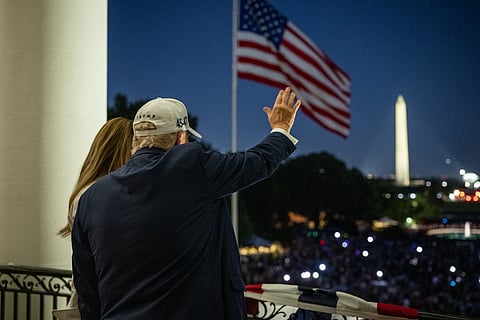

On Monday, U.S. President Donald Trump extended a pause on his reciprocal tariffs until August 1, giving 14 countries, including Japan, South Korea, and Bangladesh, a deadline to negotiate trade deals or face new tariff rates.
The pause, initially set to end on July 9, follows a 90-day suspension announced on April 9, which applied a flat 10 percent tariff to most U.S. trading partners.
Trump also sent tariff letters to these nations, outlining rates ranging from 25 to 40 percent if no agreements are reached by the deadline.
For some, like South Korea and Indonesia, the rates match those announced in April, while others, like Cambodia and Laos, face lower tariffs than initially proposed.
The 14 targeted nations include Japan and Malaysia (25 percent), South Africa and Bosnia and Herzegovina (30 percent), Bangladesh and Serbia (35 percent), and Cambodia and Thailand (36 percent), with Laos and Myanmar facing the highest at 40 percent.
Trump’s letters, posted on Truth Social, emphasized addressing trade imbalances and offered tariff exemptions for companies relocating production to the U.S.
He also warned that retaliatory tariffs from these countries could lead to even higher U.S. tariffs.
Additionally, Trump threatened an extra 10 percent tariff on BRICS nations after their summit criticized U.S. trade policies, impacting countries like Indonesia and South Africa.
Japan and South Korea have pledged to accelerate trade talks to mitigate tariff impacts, with Japan’s trade minister, Ryosei Akazawa, prioritizing automobile exports while protecting agriculture.
South Africa’s President Cyril Ramaphosa called the 30 percent tariff “unilateral,” noting that 77 percent of U.S. goods enter South Africa duty-free, and vowed to pursue diplomatic solutions.
Only two deals have been secured during the pause: one with the UK, setting a 10 percent tariff on most exports, and another with Vietnam, imposing a 20 percent tariff.
U.S. markets reacted negatively, with the S&P 500 dropping 0.8 percent, the Dow Jones falling 0.94 percent, and Japanese automakers like Toyota and Honda declining significantly.